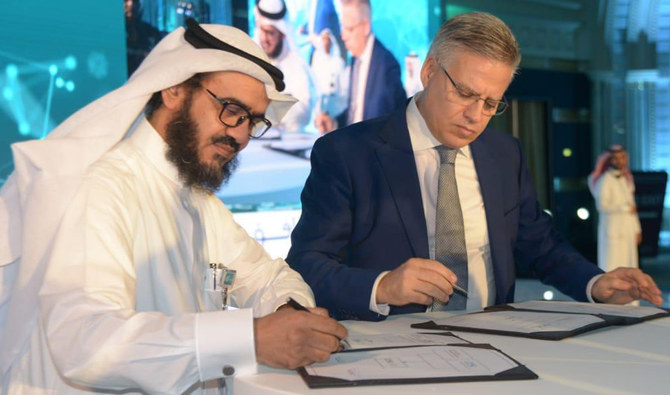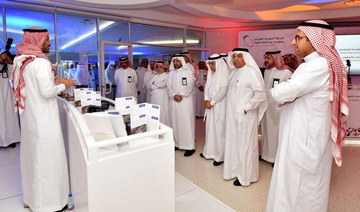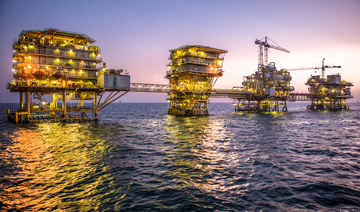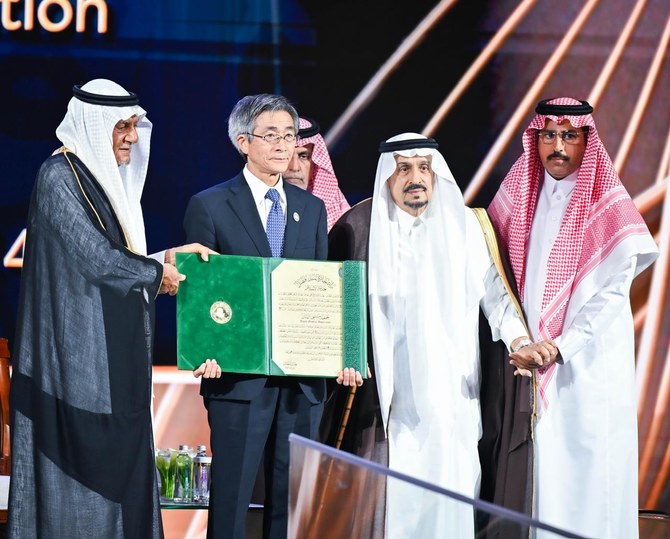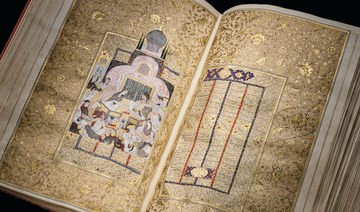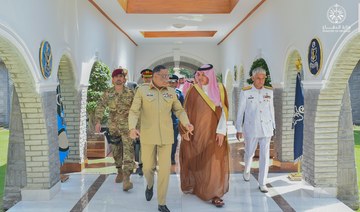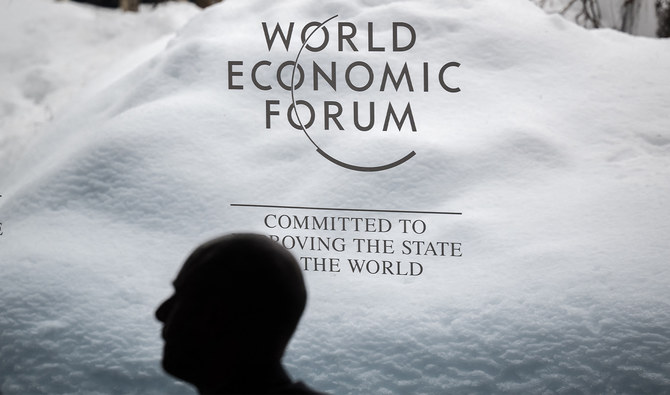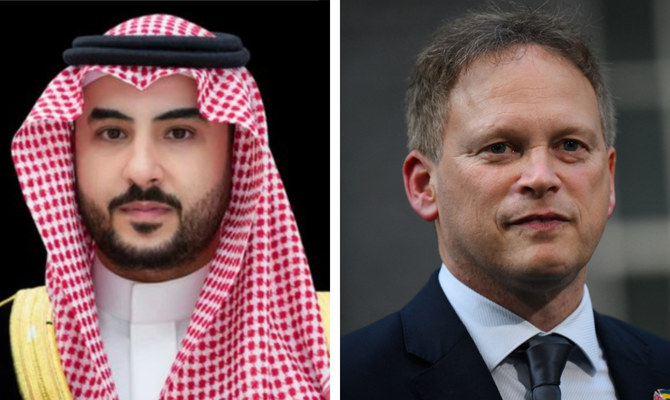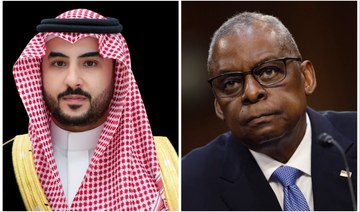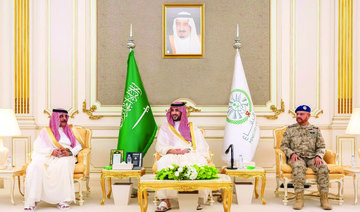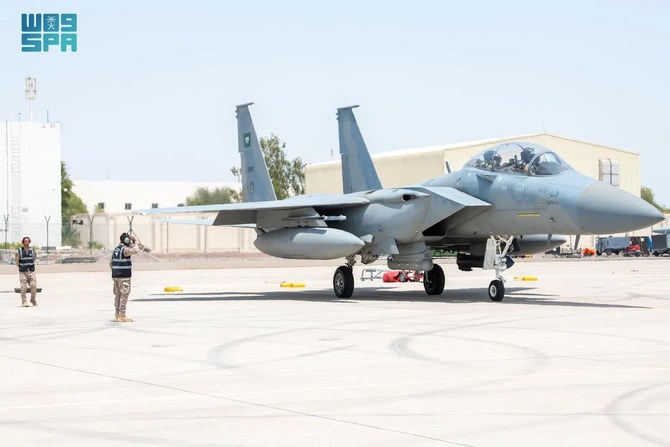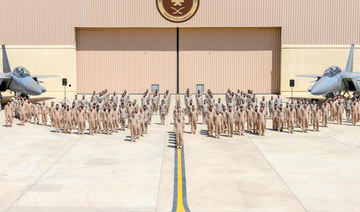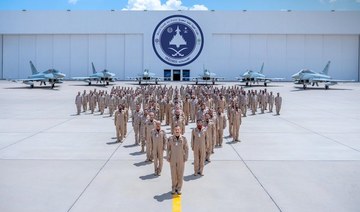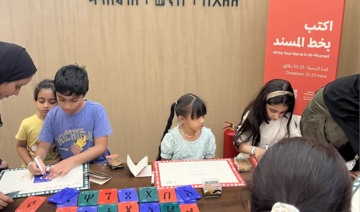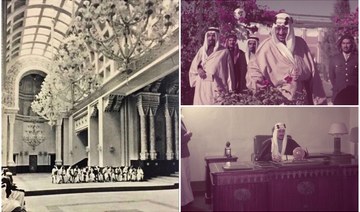JEDDAH: Energy chiefs on Wednesday signed a deal to set up the Middle East and North Africa (MENA) region’s first specialized equipment test lab in Saudi Arabia.
Once completed, the project is expected to put the Kingdom at the center of the global sustainable energy market sector.
The accord was inked during a ceremony at the start of the ninth Saudi Arabia Smart Grid (SASG 2019) conference held at Jeddah’s Ritz-Carlton hotel.
Global technical consulting and engineering company CESI, and GCC Electrical Testing Laboratory (GCC Lab) agreed to establish the Gulf Electrical Power Laboratories (CESI/GEPL) as the first and largest independent entity of its kind in the MENA region.
Mohammed Al-Muaili, CESI/GEPL’s acting CEO, told Arab News: “Our partnership with CESI includes an exclusive agreement to serve the Middle East and North Africa.”
GEPL is a state-of-the-art semi-governmental electromechanical testing facility that provides localized and technical services from Saudi Arabia to the wider GCC and MENA region, and the testing platform will provide engineering and consultancy services from its soon-to-be-built lab in Dammam.
Services offered will include asset management, upgrading assets and maintenance procedures, training and certifications for engineers and technicians, research and development, as well as quality assurance and control. “We aim to end the prevalence of sub-quality materials,” said Saleh Al-Amri, GCC Lab CEO. “Our venture will provide the tools to enable our stakeholders to stop flooding the industry and ensure that all power components that they use are compliant with the highest international standards.
“The lab will be a key asset to support the policies that will sustain the electrical industry in the region. Localizing electromechanical testing is a great milestone for Saudi.”
Al-Muaili said the idea behind the project was first formed in 2014 and it started to be implemented at the beginning of 2016. “In the meantime, our renewable energy and calibration laboratories are 100 percent active. However, in light of this agreement, other labs such as the high-voltage and high-power labs are planned to be 100 percent ready by mid-2021 at most.”
Based in Milan, CESI is a world-leading technical consulting and engineering company operating in more than 40 countries around the world, providing testing and certification services to the electromechanical industry as well as consulting and engineering services to the energy sector.
It is one of the few notified bodies in the world for testing and certification of energy components from low, up to the highest, voltage.
Floris Schulze, managing director and CEO at CESI Middle East, said that the project would contribute to bridging a long-standing gap in the region not only for its unique services but its strategic location.
“The Kingdom is very well-geographically located and looking at all the developments in the Kingdom and the GCC, there will be a lot of different interactions between the continents and countries including energy exchange,” Schulze added.
A growing regional need to move away from a reliance on an oil and gas-based energy sector to more sustainable clean energy, would require different technologies and components and an ability to ensure quality was aligned with international standards.
Schulze, who is also the chief operating officer of the new laboratory company in Dammam, said: “I think it is the right time to have such a laboratory established in the Kingdom providing the quality assurance and control services to make sure that the manufacturers are committed to international standards once they begin providing their components; otherwise cheap and low-quality products will flood the GCC market causing many problems in the region’s energy sector.”
The CESI/GEPL will also train local experts and engineers to localize knowledge and expertise, helping to achieve Vision 2030’s goal of creating a sustainable knowledge economy and benefitting from global experience. “Once the project is complete, Saudi Arabia will earn its place on the map among the most important global mega labs and will play a leading role in the regional scene,” said Al-Muaili.
The conference signing ceremony was also attended by Dr. Khalid bin Saleh Al-Sultan, chairman of King Abdullah City for Atomic and Renewable Energy, and Stefano Stucci, Italy’s consul general in Jeddah.
SASG 2019, which ends on Dec. 12, is an annual event held under the auspices of the ministries of energy, industry, and mineral resources, and offers a platform for different local participants to share their visions and achievements in the field of emerging technologies.



